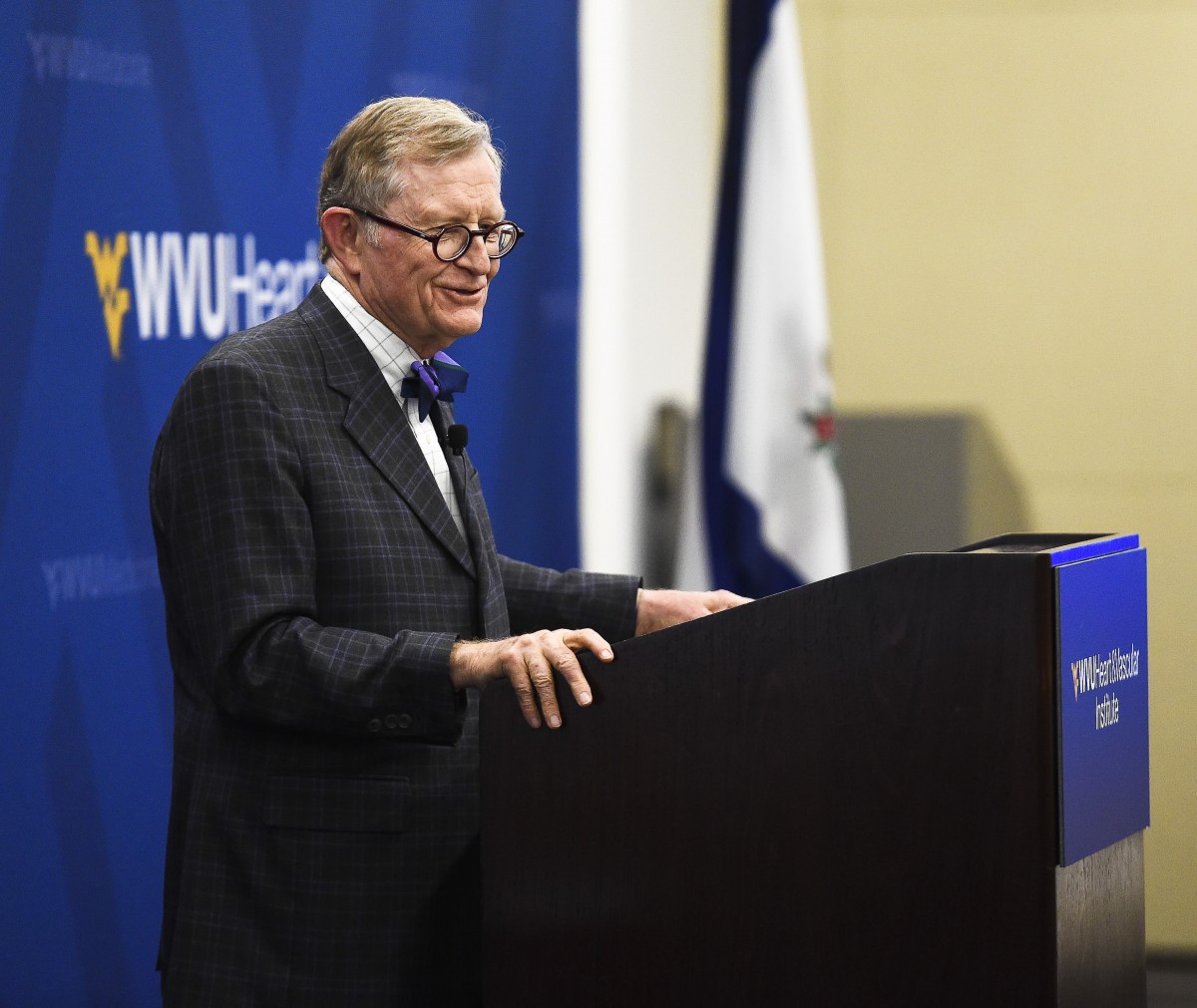MORGANTOWN — Fraternities, finances and the need for forward thinking were among the highlighted talking points during WVU President Gordon Gee’s annual State of the University address, delivered Monday afternoon at the Erickson Alumni Center.
Gee was direct in tackling the ongoing row between the university and a group of fraternities that recently disassociated with WVU to create an independent fraternity council. This came after reports of misconduct prompted the university to implement a series of policy changes for Greek life.
WVU responded by cutting ties with Alpha Sigma Phi, Phi Sigma Kappa, Kappa Alpha Order, Sigma Chi and Theta Chi for at least 10 years.
“I’m aware that the national organizations are writing letters to disparage our actions, but let me be clear, some of our students are being asked to make a difficult, an impossible choice by their national [fraternity] headquarters — choose your fraternity or your university,” Gee said. “It is a choice no student should have to make.”
The choice made by the sororities on campus to embrace the university’s new regulations — which include raised academic standards and increased oversight — has, according to Gee, resulted in growing numbers for those organizations.
He went on to say that his resolve to act decisively in addressing unwanted behavior on campus was bolstered during a recent meeting with the parents of Nolan Burch, a freshman from New York who died with a blood alcohol content of 0.493 after a 2014 fraternity event.
The university is working with the Burch family this fall on a program to help identify and provide resources to combat hazing on campus.
“I know we’re doing the right thing,” Gee said.
More standard fare for such speeches, Gee also touted a number of ways in which he says West Virginia’s land-grant university is forging a path forward for the state.
He said nearly 70,000 college graduates have left West Virginia over the last decade.
“By developing programs that meet the needs of the market, we are establishing pathways that can lead to a job in West Virginia, improving both the university’s outcomes as well as our state’s economy,” Gee said, pointing to initiatives including new degree programs in growing fields like cyber-security and adventure recreation management.
He went on to say that through WV Forward — a collaborative effort with Marshall University and the West Virginia Department of Commerce — prospective entrepreneurs will soon have access to a one-stop shop of available assistance, including grant funding and debt and equity sources.
The university is also working to advance the cause of health and wellness in the Mountain State, specifically focusing on two of its leading killers, addiction and heart disease.
Gee noted the creation of a new minor in addiction studies as well as the granting of federal resources to bolster the number of addiction counselors in the state, which is currently below half the national average.
“This is real life and our faculty and students are leading the way in changing destructured realities into futures of hope,” Gee said.
He touted the recent announcement that WVU Medicine will soon start the state’s first heart transplant program and said WVU was the first site selected for a new clinical trial treating Alzheimer’s patients using innovations in ultrasound technology.
But all of this doesn’t come cheap, even for a university with assets approaching $4 billion.
Gee decried what he called the “Robin Hood formula” put forward by staff of the West Virginia Higher Education Policy Commission that would further reduce WVU’s state allocation in favor of other institutions.
“West Virginia University should not be penalized for its success and for its perceived ability to handle reductions easier than other schools,” Gee said. “All schools are underfunded.”
He went on to say that given the good economic news coming out of Charleston of late, the state should begin undoing recent cuts to higher education, including a $16 million reduction in 2017.
“If those trends continue, I believe the legislature and the governor could make no wiser investment than reinstating some of the reductions made to higher education,” Gee said. “West Virginia’s future prosperity is directly tied to improving higher education in this state.”
Tweet @DominionPostWV. Email bconley@dominionpost.com




